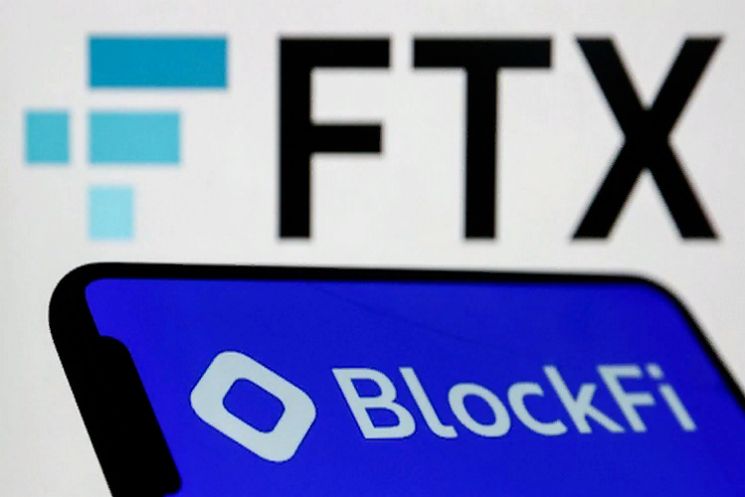BlockFi, a cryptocurrency lender, said on Monday that it has filed for Chapter 11 bankruptcy protection, becoming the latest company to fail in the market after being exposed to the stunning collapse of the FTX exchange earlier this month. The court petition in New Jersey comes as cryptocurrency values have fallen sharply. The cost of bitcoin, the most widely used digital currency, has decreased by more than 70% from its high in 2021.
Monsur Hussain, senior director at Fitch Ratings, says, "BlockFi's Chapter 11 reorganization shows considerable asset contagion risks connected with the crypto ecosystem."
BlockFi, a company in New Jersey owned by former finance executive turned cryptocurrency entrepreneur Zac Prince, claimed in a bankruptcy petition that a liquidity issue was brought on by its significant exposure to FTX. Sam Bankman-Fried, the founder of FTX, filed for protection in the US this month after investors withdrew $6 billion from the exchange in just three days and Binance, a rival business, abandoned a rescue plan.
According to BlockFi, the liquidity problem was brought on by both coins locked on FTX's platform and its exposure to FTX through loans to Alameda, an affiliated crypto trading company. According to BlockFi, its assets and liabilities range between $1 billion to $10 billion.
BlockFi is suing Bankman-Fried for shares in Robinhood
Bankman-Fried pledged his ownership of Robinhood through a holding company as security for a loan. BlockFi, which on Monday filed for Chapter 11 bankruptcy protection as stated above, on the same day, sued Emergent Fidelity Technologies, the holding company for FTX founder Sam Bankman-Fried, for Robinhood Markets (HOOD) shares the company held and pledged to BlockFi as collateral.
Related: Ripple blames the SEC for BlockFi’s demise
David Schwartz, the chief technology officer of Ripple, recently tweeted criticism of the SEC over BlockFi's untimely demise. He said that BlockFi used the assets it maintained at FTX as leverage to borrow from FTX to pay the penalty the SEC had imposed on them. In other words, Schwartz implies that BlockFi may have fallen into financial instability due to the SEC's sanctions, which led to the company's death alongside the collapse of FTX.
David commented after BlockFi stopped allowing customer withdrawals during the first week of November. When the exchange fell under, one of the early victims of the contagion was the crypto lending platform. It used a $400 million line of credit from FTX US during the summer.
As the legal dispute between Ripple Labs and the U.S. Securities and Exchange Commission (SEC) nears its resolution, the fintech appears to be dealing Bank of America yet another blow. The dates Nov. 30 and Dec. 5 may be crucial indicators of a prospective settlement agreement between the two sides.
Despite this, Ripple's legal team and CTO, Schwartz, continue their legal battle with the SEC and harshly criticize its anti-crypto industry enforcement actions. Stuart Alderoty, general counsel at Ripple, echoed the SEC's recent annual report, in which the body praised itself. The commission brought 760 enforcement actions this year, up 9% from the previous year, the report said.
Nothing was ever "registered" under the BlockFi/SEC agreement, according to Ripple's Alderoty
The initial two installments of the $100 million fee were under dispute, according to Ripple's Aldetory. Alderoty was confident that she wanted to know if they were genuine or if the SEC had verified BlockFi's financial status and ability to pay. In response to Alderoty, Australian lawyer Bill Morgan stated that the SEC received stolen funds while exploiting the bitcoin assets of FTX/BlockFi investors, which the SEC is supposed to protect. The SEC may have taken stolen money, which raises an issue.
Silvergate acknowledges low vulnerability to BlockFi while disputing recent FUD
Quick to dissociate itself from the now-defunct cryptocurrency lender BlockFi, Silvergate Capital has confirmed low exposure to the troubled firm. On November 28, Silvergate declared that the total amount of deposits from all its clients who use digital assets it will make to BlockFi would be at most $20 million. According to the company's revenue report for Q3, those deposits came to $13.2 billion.
It further stated that BlockFi was not a custodian for its leverage loans secured by Bitcoin BTC and that the company had no stakes in BlockFi. Silvergate CEO Alan Lane reassured nervous investors that "Silvergate's technology was purpose-built to manage stress and volatility" as the digital asset market underwent further change.
Many FUD (fear, uncertainty, and doubt) statements—or, as Silvergate put it—"false and misleading statements"—have been made about the company.
Walter Bloomberg, a technical analyst and Swiss investor told his 622k Twitter followers on November 29 that "Silvergate Capital purported to have given money to BlockFi." Still, he did not offer any supporting documentation.
Over the past week, several people have joined the FUD fest with several tweets. However, the majority of them needed more specifics. According to the statement, BlockFi has over 100,000 creditors, assets between $1 billion and $10 billion, and liabilities identical to those mentioned earlier. This new bout of FUD appears to have been fueled by the most well-known cryptocurrency bankruptcy, which Silvergate has felt the need to dispel.
 cryptonews.net
cryptonews.net
